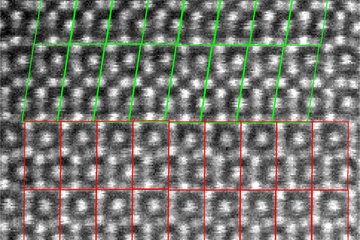All genres
1.
Journal Article
Prediction of cold rolling textures of steels using an artificial neural network. Computational Materials Science 46, pp. 800 - 804 (2009)
2.
Journal Article
A texture component model for predicting recrystallization textures. Materials Science Forum 558 / 559, pp. 1035 - 1042 (2007)
3.
Talk
Texture Component Model for Predicting Recrystallization Textures. 15th International Conference on the Texture of Materials (ICOTOM 15), Pittsburgh, PA, USA (2008)
4.
Talk
Brief Introduction to Cellular Automaton and Monte Carlo Method. MPIE inter-departmental tutorial day(s) 2008, MPI für Eisenforschung GmbH, Düsseldorf, Germany (2008)
5.
Talk
A texture component model for predicting recrystallization textures. The Third International Conference on Recrystallization and Grain Growth, Jeju Island, South Korea (2007)











